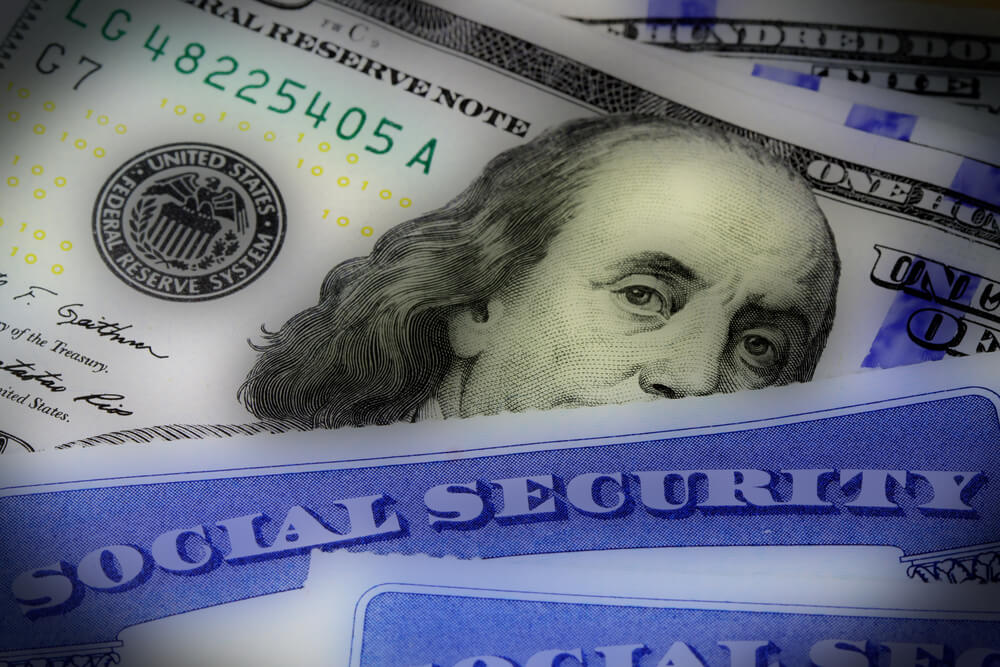Social Security was supposed to be a program that helped less fortunate Americans as they got older and couldn’t work as much, but a new report shows the ones who benefit the most from the program fall into a different demographic — and pay grade — entirely.
The report from Boston College’s Center for Retirement Research, reveals that the biggest beneficiaries of Social Security are high earners who are healthy and able to delay collecting benefits for as long as possible. Because they are living longer, they can collect benefits longer than poorer people who have to start collecting benefits either right at 62 (the minimum age requirement) or close to it.
“Lower earners were supposed to gain more from Social Security,” Anqi Chen, coauthor of the report said, according to the Boston Globe. “But those who can’t wait to collect at their full retirement age are now getting penalized.”
Your full retirement age is when you can start receiving your full Social Security benefits, and for most that age is somewhere between 66 and 67, depending on when you were born. Waiting beyond that age can provide an even bigger boost to your monthly checks, to the tune of 8% a year, until you reach age 70.
So if you’re rich and healthy, you’ve got it made. And that’s got some people wondering about the future of the program when those benefiting most are the people who need it the least.
Jim Roosevelt, a former president of Tufts Health Plan and the grandson of former U.S. President Franklin Delano Roosevelt, who started the Social Security program in the 1930s, said it isn’t working the way it was originally intended.
“The program’s become less progressive,” Jim Roosevelt said. “It doesn’t take care of the people at the lower- and middle-income levels as well as it was intended do, and it needs to be updated.”
Another aspect of Social Security that could use some work, according to Roosevelt, is the cap on taxable income, which is another benefit for higher earners.
Currently, Social Security only taxes income up to $132,900 in 2019, so anything above that cap is safe from additional duties. Workers making more than that make up about 6.2% of the U.S. population.
The cap was established in 1980 and the earned income excluded by the rule only totaled about 10%. But now about 18% of earned income is excluded from taxation because of growing wealth inequality.
Missing out on these funds means missing out on money that could be used to sustain a program that is reportedly going to be insolvent by 2035, meaning a reduction of benefits unless congress acts.
FDR’s original plan for Social Security was to guarantee retirement income for Americans who had suffered through the Great Depression, but now it’s taken on a new form.
“We have to expand the system. Social Security is extremely important to low-income people,” Social Security Works President Nancy Altman said. “They’re less likely to work in jobs that have private pensions, so it’s more likely to be their only retirement income.”
And people who claim before their full-retirement age are getting penalized, no matter how much they may need the money to get by.
“The penalty for early claiming is now too large,” Chen said.
Anyone who starts claiming Social Security between 62 and their full retirement age will see a reduction in their checks between 5% and 6.2%, depending on how early they claim.
“Someone in a lower-paying job may not want to or may not be able to work as long. The typical higher-income employee tends to work longer and work at older ages. That gives many of them a stream of income if they want to delay claiming benefits.”
• You can find all of the latest and most important news about Social Security here on Money and Markets.
For our friends: Anyone who wants to grow and protect their money in retirement needs to hear this. For the first time publicly, Bill O’Reilly comes clean about what happened to his money.
